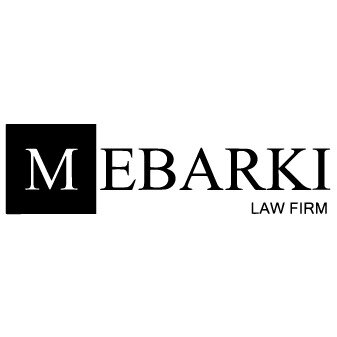Best Hiring & Firing Lawyers in Algeria
Share your needs with us, get contacted by law firms.
Free. Takes 2 min.
Or refine your search by selecting a city:
List of the best lawyers in Algeria
About Hiring & Firing Law in Algeria:
Hiring and firing practices in Algeria are governed by various labor laws and regulations that aim to protect both employers and employees. Algerian labor law places a strong emphasis on job security and the rights of workers, including requirements for notice periods, severance pay, and legal procedures for terminating employment.
Why You May Need a Lawyer:
Seeking legal advice from a lawyer specializing in labor law in Algeria may be necessary in situations such as wrongful termination, disputes over severance pay, discrimination in the hiring process, or navigating the complex regulations surrounding hiring and firing in the country. An experienced lawyer can provide guidance on your rights and options under Algerian labor law.
Local Laws Overview:
Key aspects of Algerian labor law relevant to hiring and firing include mandatory employment contracts, minimum notice periods for termination, severance pay requirements based on length of service, and procedures for resolving disputes through labor tribunals. It is essential to be familiar with these laws to ensure compliance and protect your rights as an employer or employee.
Frequently Asked Questions:
1. What are the notice requirements for terminating an employee in Algeria?
In Algeria, employers are required to provide notice to employees before terminating their employment. The length of the notice period varies depending on the employee's length of service and position within the company.
2. Is severance pay mandatory when terminating an employee in Algeria?
Yes, Algerian labor law mandates the payment of severance pay to employees who are terminated, based on their length of service with the company. The amount of severance pay is determined by specific calculations outlined in the law.
3. Can an employer terminate an employee without cause in Algeria?
Employers in Algeria are generally required to provide a valid reason for terminating an employee, such as misconduct or redundancy. However, there are specific circumstances in which termination without cause may be permissible under the law.
4. What are the legal remedies available to employees in cases of wrongful termination?
Employees who believe they have been wrongfully terminated in Algeria have the right to seek legal recourse through the labor tribunals. Remedies may include reinstatement, compensation, or other forms of relief as determined by the court.
5. Can employers in Algeria conduct background checks on potential employees?
Employers in Algeria are permitted to conduct background checks on potential employees, but they must comply with data protection laws and respect the privacy rights of the individuals being screened.
6. Are there restrictions on terminating employees during certain periods or for specific reasons?
Algerian labor law includes provisions that restrict the termination of employees during certain periods, such as pregnancy or medical leave, and prohibits discriminatory reasons for termination based on factors such as race, religion, or gender.
7. What are the steps employers should take before terminating an employee in Algeria?
Before terminating an employee in Algeria, employers should follow established procedures outlined in labor law, including providing written notice, holding meetings to discuss the reasons for termination, and documenting the decision-making process to mitigate legal risks.
8. Are there alternative options to termination that employers in Algeria should consider?
Employers in Algeria should explore alternative options to termination, such as transferring employees to different roles within the company, providing training to address performance issues, or offering voluntary redundancy packages to avoid legal disputes.
9. How can employees in Algeria protect their rights in the hiring process?
Employees in Algeria can protect their rights in the hiring process by familiarizing themselves with labor laws, reviewing employment contracts carefully before signing, and seeking legal advice if they believe their rights are being violated during the hiring process.
10. What are the common legal challenges employers face in hiring and firing employees in Algeria?
Common legal challenges employers face in Algeria include navigating complex labor regulations, ensuring compliance with employment contracts, resolving disputes with employees over termination or severance pay, and addressing discrimination or harassment claims in the workplace.
Additional Resources:
For additional legal resources and support related to hiring and firing in Algeria, individuals can contact the Ministry of Labor and Social Security, local labor unions, or seek guidance from legal professionals specializing in labor law.
Next Steps:
If you require legal assistance or advice regarding hiring and firing practices in Algeria, it is recommended to consult with a qualified labor law attorney who can guide you through the legal requirements and help protect your rights as an employer or employee. Be sure to gather all relevant documentation and information related to your situation before seeking legal advice.
Lawzana helps you find the best lawyers and law firms in Algeria through a curated and pre-screened list of qualified legal professionals. Our platform offers rankings and detailed profiles of attorneys and law firms, allowing you to compare based on practice areas, including Hiring & Firing, experience, and client feedback.
Each profile includes a description of the firm's areas of practice, client reviews, team members and partners, year of establishment, spoken languages, office locations, contact information, social media presence, and any published articles or resources. Most firms on our platform speak English and are experienced in both local and international legal matters.
Get a quote from top-rated law firms in Algeria — quickly, securely, and without unnecessary hassle.
Disclaimer:
The information provided on this page is for general informational purposes only and does not constitute legal advice. While we strive to ensure the accuracy and relevance of the content, legal information may change over time, and interpretations of the law can vary. You should always consult with a qualified legal professional for advice specific to your situation.
We disclaim all liability for actions taken or not taken based on the content of this page. If you believe any information is incorrect or outdated, please contact us, and we will review and update it where appropriate.
Browse hiring & firing law firms by city in Algeria
Refine your search by selecting a city.












